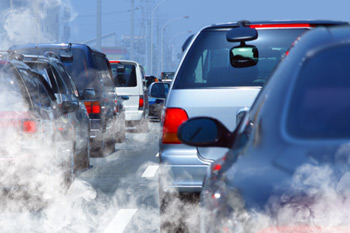A new study in The Lancet Planetary Health journal shows that increases in daily fine particulate (PM2.5) air pollution cause more out-of-hospital cardiac arrests (heart attacks). The increased risk occurred when PM2.5 air pollution levels were higher in the 3 days preceding the cardiac arrest. Most important, 98.5% of the cardiac arrests occurred at levels below the U.S. standard of 35 μg/m3, and 90% of the cardiac arrests occurred at levels below the WHO standard of 25 μg/m3.
The authors note that “no threshold level of PM2.5 is advised as safe for the general population”, and call for reassessing current air quality standards and finding strategies to reduce air pollution to as low a level as possible.
EPA has recently been considering new PM2.5 standards, and this study adds to the body of evidence that we should set our standards to at least match the WHO standard of 25 μg/m3, and it would be better if they were even lower.
Fine particulate air pollution primarily comes from combustion – of fossil fuels by power plants, cars and trucks, and industry, and from natural combustion such as wildfires. Clean vehicles and clean power address both the immediate effects of air pollution, and mitigate climate change which contributes to more intense wildfires.





